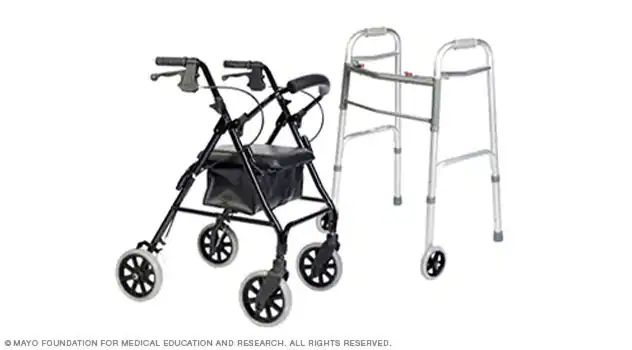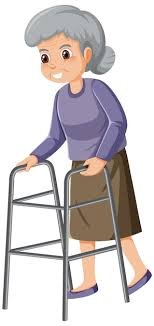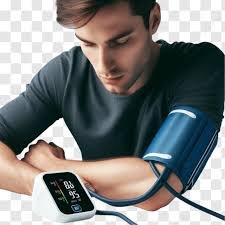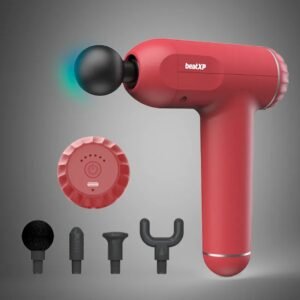Description
Tips for choosing and using walkers
A walker can make it easier to get around after surgery or after a bone break in your foot or leg. A walker also can help if you have balance problems, arthritis, leg weakness or leg instability. A walker allows you to keep weight off your feet and legs as you move.
Types of walkers:
Talk to your doctor, physical therapist or another member of your health care team about the type of walker that’s right for you. Options include:
- Standard walker. A standard walker is sometimes called a pickup walker. It has four rubber-tipped legs. It does not have wheels. This type of walker provides the most stability. You have to lift this walker to move it.
- Two-wheel walker. This walker has wheels on the two front legs. It’s useful if you need some help bearing weight as you move, or if lifting a standard walker is hard for you. It can be easier to stand fully upright with a two-wheel walker than it is with a standard walker. That may help improve posture and lower the risk of falls.
- Four-wheel walker. This walker offers continuous balance support. Using a four-wheel walker can be helpful if you are unsteady on your feet. But it tends to be less stable than a standard walker. If endurance is a concern, this type of walker often has the option for a seat.
- Three-wheel walker. This walker provides continuous balance support. But it is lighter and easier to move than a four-wheel walker, especially in tight spaces.
- Knee walker. This walker has a knee platform, four wheels and a handle. To move, you rest the knee of your injured leg on the platform and push the walker with your other leg. A knee walker typically is used for a short time when an ankle or foot problem makes walking difficult.
Is it beneficial to walk with a walker?
Physical Health Benefits
Since a walker alleviates pressure on joints, feet, and legs, and decreases the amount of effort it takes to walk, there are several medical conditions that a walker can support and improve quality of life from: Arthritis. Chronic Obstructive Pulmonary Disease (COPD) Parkinson’s Disease.







Reviews
There are no reviews yet.